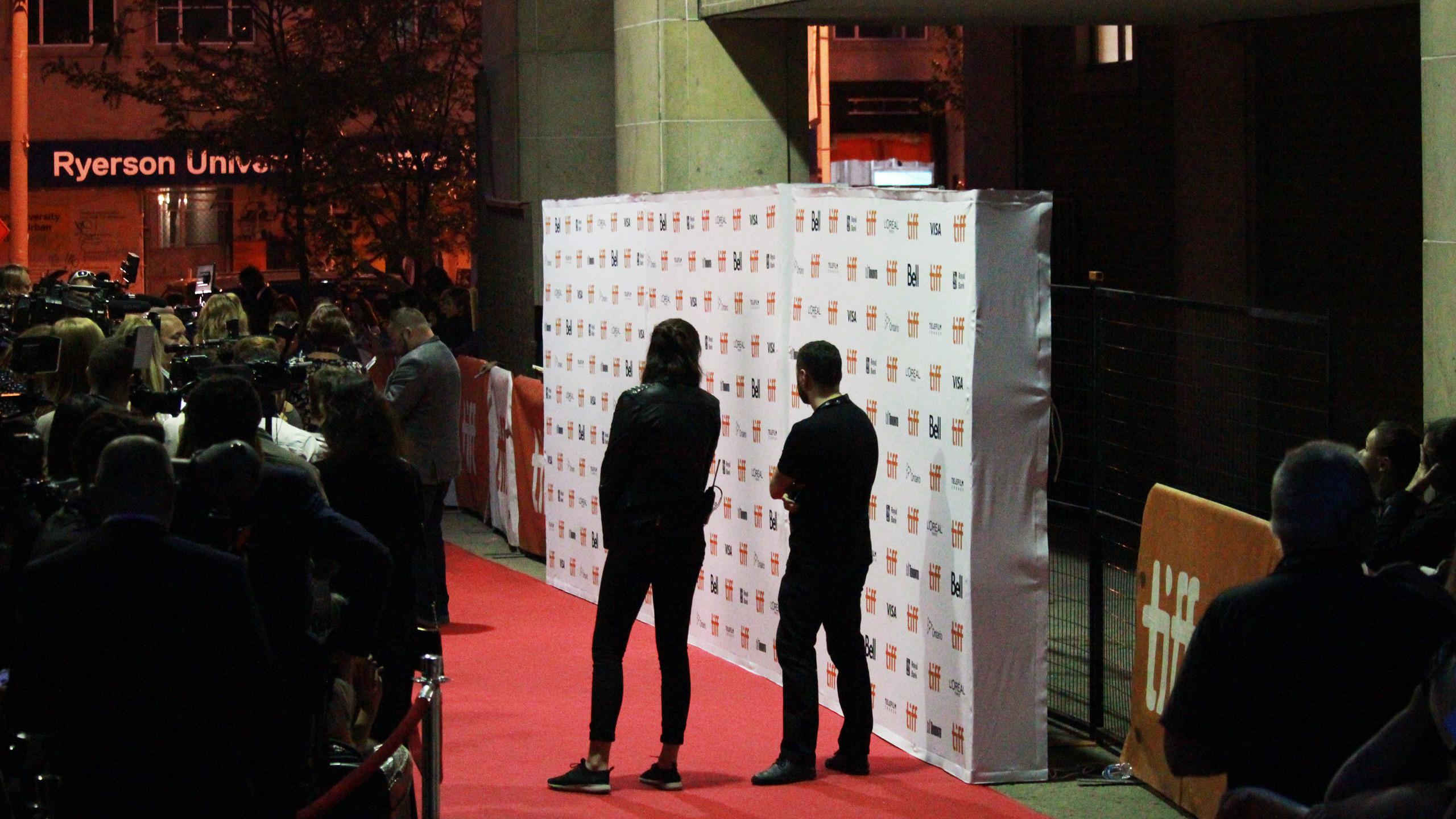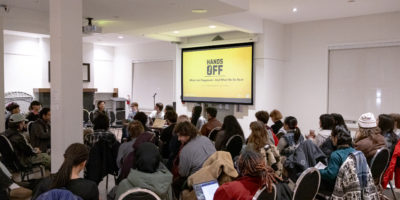By Bryan Meler
Among the Jonah Hills, Lady Gagas and Timothée Chalamets, there’s another group that stands out at the Toronto International Film Festival: The Ryerson Mafia.
The Mafia is what the expansive, but exclusive network of Ryerson students and alumni have colloquially coined themselves. It’s an organized body that takes full shape at TIFF.
“We sort of joke offhand about the Ryerson Mafia,” says Andrew Cividino, a 2006 Ryerson film studies graduate. “There’s this really organic network… A lot of us meet either at school or afterwards through the [film] community.”
TIFF is literally in Ryerson’s backyard, with the festival using the university’s Theater Building for screenings. From Sept. 6-16, it’ll once again give students an opportunity to immerse themselves within the industry’s best and most recent work.
For many like Cividino, TIFF served as an inspiration. “Having your movie played at TIFF seemed like a hard, but tangible goal to go after in Toronto.” There to help him were his classmates, who he had formed relationships with throughout his time in the program.
His film Sleeping Giant played at TIFF in 2015, going on to win the Best Canadian First Feature Film award. The crew was comprised solely of Ryerson alumni, even down to Cividino’s business partner.
“If you did an X-ray of TIFF, you’d find a wide range of Ryerson [alumni and students],” says Blake Fitzpatrick, the Chair of Ryerson’s School of Image Arts, which includes the film studies program. “From directors to volunteers… We’re producing talent for the industry.”
After enrolling in Ryerson’s film studies program in 1977, the first position Peter Mettler held at TIFF, which was then known as the Festival of Festivals, was to be the event’s only chauffeur driver. It required him to miss the first 10 days of school in order to drive greats for a festival that had just started in ‘76, but was already a platform for top-tier international cinema. “It was our education, watching these films,” says Mettler.
During his four years as part of the program, Mettler said one of the best parts was everyone working on each others films. While his generation didn’t use the term “Ryerson Mafia,” he says the school and TIFF helped him form career-long professional partnerships, even with those outside of his program. It ultimately helped Mettler become the first Ryerson student to have his film (Scisserre) played at Toronto’s film festival in 1982.
“From directors to volunteers… We’re producing talent for the industry”
As TIFF has evolved into an event that now requires fleets of cars, Ryerson has grown alongside it, forming an inevitable partnership. It’s one that has not only benefited TIFF, but has helped the Ryerson Mafia grow and gain a reputation.
“We have screened many films made by Ryerson over the years and this was obviously significant for our development as a festival,” wrote long-time TIFF CEO and Director Piers Handling in an email to The Eye.
Fitzpatrick says that having a relationship with TIFF has helped the school understand what’s cutting edge. It’s also opened opportunities to network within the industry and be part of Toronto’s growing film scene.
Part of that influence comes from Theresa Scandiffio, the senior director of TIFF’s Higher Learning program. She helps organize opportunities for students to be able to maximize TIFF resources that are available to them, such as film competitions they can submit their work to, or screenings and seminars at the Bell Lightbox, which has been open year-round since 2010.
Ryerson has also formed their own initiatives that have created informal relationships with TIFF, such as the Ryerson University Film Festival (RUFF) in the spring, which provides fourth-year film students a chance to showcase their thesis projects. The festival is known to be attended by the industry’s best, looking for work they can feature in upcoming festivals like TIFF in the fall.
“Having your movie played at TIFF seemed like a hard, but tangible goal”
Ryerson film studies academic coordinator James Warrack says that because they know what TIFF is looking for, it’s had an impact on the type of films their students produce. Compact short films and fiction have more of an opportunity to be seen, says Warrack, which is why they’re a focus in the program.
That emphasis has helped Evangeline Brooks, a third-year Ryerson film student whose short film Sheep is playing at this year’s TIFF’s Instagram festival. Brooks, who’s heard the words “Ryerson Mafia” echo through her program for years, says the only downside of having TIFF so close to Ryerson is that students can feel pressured to immediately start working because there are so many competitive opportunities.
Instead she’s comfortable taking her time as a student to explore and master the basics. Brooks’ first-year film, Sheep, was made on 16 mm black and white analogue film, shot in one day with a crew of Ryerson classmates.
“Our professors encourage us to network and work among ourselves, not focus people in the industry that are above us,” says Brooks. “Instead, in a couple years, we can all move up together.”













Leave a Reply